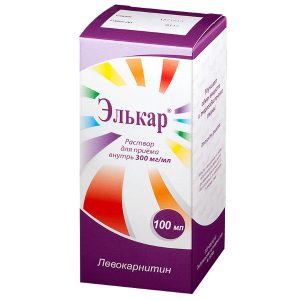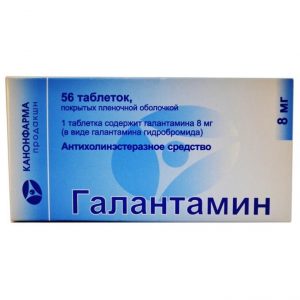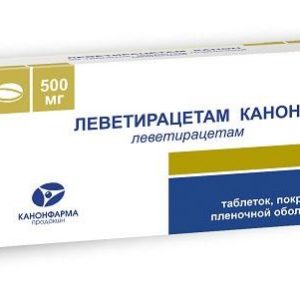Description
Pharmacological action
Antipsychotic (antipsychotic).
The therapeutic effects of aripiprazole in schizophrenia are believed to be due to a combination of partial agonistic activity against dopamine D2 and serotonin 5-HT1 receptors and antagonistic activity against serotonin 5-HT2 receptors.
Aripiprazole has high in vitro affinity for dopamine D2 and D3 receptors, serotonin 5-HT1a- and 5-HT2a receptors, and moderate affinity for dopamine D4, serotonin 5-HT2c and 5-HT7, 1-adrenoreceptors and histamine H1 receptors.
Aripiprazole is also characterized by moderate affinity for serotonin reuptake sites and a lack of affinity for muscarinic receptors.
Indications
Treatment of acute attacks of schizophrenia, supportive treatment of schizophrenia.
Treatment of acute manic episodes of type I bipolar disorder and for maintenance therapy in patients with type I bipolar disorder who have recently experienced a manic or mixed episode.
Contraindications
Senile dementia, lactation, childhood and adolescence up to 18 years, hypersensitivity to aripiprazole.
Special instructions
Use with caution in patients with cardiovascular diseases (IHD, including myocardial infarction, chronic heart failure, impaired conduction), conditions predisposing to arterial hypotension (dehydration, hypovolemia, and hypotensive drugs) in connection with the possibility of developing orthostatic hypotension in patients with cerebrovascular diseases, with convulsive seizures or suffering from diseases, in which convulsions are possible in patients with an increased risk of hyperthermia (for example, during intense physical exertion, overheating, taking anticholinergics, and dehydration due to the ability of antipsychotics to disrupt thermoregulation) in patients with an increased risk of aspiration pneumonia due to a risk of impaired motor function of the esophagus and aspiration in obese patients, with a history of diabetes mellitus taking funds with m-anticholinergic activity.
The tendency to suicidal thoughts and attempts is characteristic of psychoses, therefore, when conducting drug therapy, careful medical supervision is necessary.
The risk of developing tardive dyskinesia increases with the duration of antipsychotic therapy, therefore, if symptoms of tardive dyskinesia appear while taking aripiprazole, you should reduce its dose or cancel it. After discontinuation of therapy, these symptoms may temporarily intensify or even appear for the first time.
In the treatment of antipsychotics, incl. aripiprazole may develop ZNS, which is manifested by hyperpyrexia, muscle rigidity, mental disorders and instability of the autonomic nervous system (irregular heartbeat and blood pressure, tachycardia, sweating and cardiac arrhythmias). In addition, sometimes there is an increase in CPK activity, myoglobinuria (rhabdomyolysis) and acute renal failure. In case of symptoms of CNS or unexplained fever, all antipsychotics, including aripirazole must be discontinued.
Hyperglycemia, in some cases severe and associated with ketoacidosis, which can lead to hyperosmolar coma and, even death, has been observed in patients taking atypical antipsychotics. Although the relationship between taking atypical antipsychotics and hyperglycemic type disorders remains unclear, patients who are diagnosed with diabetes should regularly check their blood glucose levels when taking atypical antipsychotics. Patients who have risk factors for diabetes mellitus (obesity, the presence of diabetes in the family) when taking atypical antipsychotics should determine the level of glucose in the blood at the beginning of the course and periodically during the drug. Any patient taking atypical antipsychotics requires constant monitoring of the symptoms of hyperglycemia, including increased thirst, increased urination, polyphagy, and weakness.
Influence on the ability to drive vehicles and control mechanisms
As with the appointment of other antipsychotics, when prescribing aripiprazole, the patient should be warned about the dangers of working with moving mechanisms and driving.
Composition
1 tab. contains:
Active ingredients:
aripiprazole 15 mg,
Excipients:
lactose monohydrate – 91.53 mg,
corn starch – 15.675 mg,
microcrystalline cellulose – 15.675 mg,
25 mgprol iron oxide yellow oxide (E172) – 0.345 mg.
Dosage and administration of
Individual, depending on the indication, course of the disease, tolerance to therapy.
Dose is 10-30 mg 1 time / day.
Side effects of the
From the cardiovascular system: often – orthostatic hypotension, tachycardia possibly – bradycardia, palpitations, myocardial infarction, QT interval prolongation, cardiac arrest, hemorrhage, atrial fibrillation, heart failure, myocardial fibrosis, AV-thrombosis, AV-thrombosis, deep veins, phlebitis, extrasystole rarely – vasovagal syndrome, enlargement of the heart, atrial flutter, thrombophlebitis, intracranial bleeding, cerebral ischemia is very rare – fainting.
From the digestive system: very often – nausea, loss of appetite often – dyspepsia, vomiting constipation is possible – increased appetite, gastroenteritis, difficulty swallowing, flatulence, gastritis, dental caries, gingivitis, hemorrhoids, gastroesophageal reflux, gastrointestinal, blood and intestinal periodontal abscess, swelling of the tongue, fecal incontinence, colitis, rectal hemorrhage, stomatitis, ulceration in the mouth, cholecystitis, fecaloma, candidiasis of the oral mucosa, cholelithiasis, belching, gastric ulcer rarely – esophagitis, bleeding Esen, inflammation of the tongue, bloody vomiting, gastrointestinal bleeding, duodenal ulcer, cheilitis, hepatitis, liver enlargement, pancreatitis, intestinal perforation is very rare – increased activity of ALT, AST, alkaline phosphatase.
Allergic reactions: very rarely – anaphylaxis, angioedema, pruritus and urticaria.
From the musculoskeletal system: often – myalgia, cramps possibly – joint and bone pain, myasthenia gravis, arthritis, arthrosis, muscle weakness, cramps, bursitis very rarely – increased CPK activity, rhabdomyolysis, tendenitis, tenobursitis, rheumatoid arthritis, myopathy .
From the side of the central nervous system and peripheral nervous system: very often – insomnia, drowsiness, akathisia often – dizziness, tremor, extrapyramidal syndrome, psychomotor agitation, depression, nervousness, increased salivation, hostility, suicidal thoughts, manic thoughts, unsteady gait, confusion resistance to the performance of passive movements (gear syndrome) is possible – dystonia, muscle twitching, weakening of the concentration of attention, paresthesia, tremor of the extremities, impotence, bradykinesia, decreased / increased libido, panic reactions, apathy, weakened memory, stupor, amnesia, stroke, hyperactivity, depersonalization, dyskinesia, restless legs syndrome (akathisia), myoclonus, depressed mood, increased reflexes, slowing of mental function, increased sensitivity to irritants, hypotension, disturbance of the oculomotor reaction is rare – delirium, euphoria, buccogloss syndrome, akinesia, depression of consciousness up to loss of consciousness, reduced reflexes, obsessive thoughts, ZNS.
From the respiratory system: often – shortness of breath, pneumonia possibly – asthma, nosebleeds, hiccups, rarely laryngitis – hemoptysis, aspiration pneumonia, increased sputum production, dry nasal mucosa, pulmonary edema, pulmonary embolism, hypoxia, respiratory failure, apnea.
Dermatological reactions: often – dry skin, itching, excessive sweating, skin ulceration possibly – acne, vesiculobulous (vesicular) rash, eczema, alopecia, psoriasis, rarely seborrhea – maculopapular rash, exfoliative dermatitis, urticaria.
On the part of the sensory organs: often – conjunctivitis, ear pain is possible – dry eyes, eye pain, tinnitus, middle ear inflammation, cataracts, loss of taste, blepharitis rarely – increased lacrimation, frequent blinking, otitis externa, amblyopia, deafness , diplopia, eye hemorrhage, photophobia.
From the urinary system: often – urinary incontinence is possible – cystitis, frequent urination, leukorrhea, urinary retention, hematuria, dysuria, amenorrhea, premature ejaculation, vaginal bleeding, vaginal candidiasis, renal failure, uterine bleeding, menorrhagia, albuminuria, kidney stones, nocturia, polyuria, urinary pain – urination , cervicitis, galactorrhea, anorgasmia, burning in the genitourinary system, glycosuria, gynecomastia (enlargement of the mammary glands in men), urolithiasis, painful erection.
On the part of the body as a whole: often – flu-like syndrome, peripheral edema, chest pain, possibly neck pain, pelvic edema, malaise, photosensitivity, jaw pain, chills, stiffness of the jaw, bloating, tension in the chest rarely – sore throat, stiffness in the back, heaviness in the head, candidiasis, stiffness in the throat, Mendelssohn syndrome, heat stroke.
From the side of metabolism: often – weight loss, increase in CPK level is possible – dehydration, edema, hypercholesterolemia, hyperglycemia, hypokalemia, diabetes mellitus, hyperlipidemia, hypoglycemia, thirst, high blood urea, hyponatremia, iron deficiency anemia, anemia, anemia, , elevated LDH levels, rarely obesity – hyperkalemia, gout, hypernatremia, cyanosis, urine acidification, hypoglycemic reaction.
active substance
Aripiprazole
Dispensing conditions from
pharmacies Prescription
dosage form
tablets
Appointment
for Adults on appointments doctor
Indications
schizophrenia, Manyakalno-depressyvn y psychosis Psyhycheskye disorders




